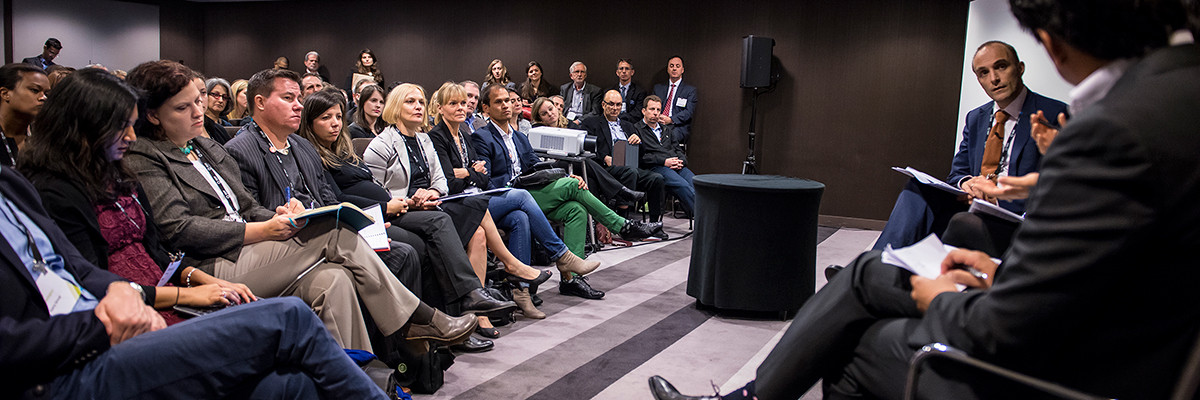
Authors
Eduardo Reyes, MBA Candidate, Haas School of Business, University of California, Berkeley; Former Intern, BSR
I grew up in Guatemala, where the realities of social disparity were very palpable from a young age. I struggled to understand why I had access to the opportunities that have led me to write this blog today, while others faced a more opaque economic future. I joined BSR as an intern last summer to explore how business can boost emerging markets toward a more inclusive economy.
At the BSR Conference 2014, I was heartened to see business leaders place the issue of inequality front and center. On top of demonstrating good corporate governance, speakers focused on generating good jobs, increasing access to goods and services, investing in local communities, and taking a longer-term, more diversified view of profits.
Creating Good Jobs
Loosely defined, a “good job” provides adequate income, supports employee well-being, and allows for social mobility, as discussed in a breakout session. In his plenary address, H&M CEO Karl-Johan Persson highlighted his company’s “fair living wage” program, which engages with factory owners, factory employees, and local governments to ensure that workers earn enough to cover all basic needs. “So far, we have seen wages increase and overtime expenses decrease, all while our overall productivity has gone up,” Persson said, going on to underline that the program’s success is due to the company’s vision of valuing long-term benefits over short-term returns.
Tackling Inequalities through Innovation
Companies are taking new tacks to address inequality through products, services, and increasing access. In the session “Next Generation Product Innovation,” Amanda Gardiner, director of partnerships at Pearson, said: “Education is a huge enabler of progress, and it is essential for our company to serve the education needs of all children, regardless of their family’s income level.” According to Gardiner, the company's approach is to create shared value by placing investments that align business interests with the social needs of underserved children in order to be much more sustainable, scalable, and significant in the long term. Considering Pearson's scope of capabilities and expertise, this approach can be more transformative than traditional philanthropic efforts.
Investing for Prosperous and Inclusive Communities
In a breakout session, Tracy Bame, director of social responsibility at Freeport-McMoRan, explained that for her company, social responsibility starts by giving a voice to the local community. “We want the communities where we operate to be resilient,” she said. “For us, it is not only about engagement, but also about empowerment. “
In the same session, Ronni Goldfarb, CEO of Equal Access International, added that community engagement and including local people in economic benefits are key to successful business outcomes. She emphasized the importance of creating shared value, paraphrasing a quote attributed to an Australian aboriginal group: “If you have come here to help me, you are wasting our time. But if you have come because your destiny is bound up with mine, then let us work together.”
Taking a Long-Term View
Darren Walker, president of the Ford Foundation, noted that many firms are starting to optimize other categories of value—whether in improving stewardship of natural resources, protecting human dignity, or advancing social justice. “There is a paradigm shift among corporate leaders who are coming together in small groups, to think about how markets and capitalism can work better and for more people,” he said.
As companies find themselves in the spotlight on the inequality debate, many have declared a mission broader than financial returns. In the "Corporate Responsibility in the Age of Inequality" session, Audrey Choi, CEO of Morgan Stanley’s Institute for Sustainable Investing, highlighted why the private sector should prioritize tackling inequality: “On one side, if consumers have more, then they will spend more. On the other, we have to think about losses in productivity, human capital, entrepreneurship, and innovation due to the lack of social mobility.” For Morgan Stanley, Choi said, efforts to address inequality are not solely about corporate responsibility or philanthropy: “In 35 years, we will have two more billion people in the world, which is why we need to secure energy, infrastructure, water, and food for everybody. There is a social justice angle, but in practical terms, it’s just good business to make these investments.”
There is no easy solution to inequality, which puts at risk our economies, our democracies, and our ideals of mobility and opportunity. Stories from the BSR Conference 2014 illustrate that exemplary business leaders are moving in the right direction. But if we are to be successful in closing the inequality gap, we must continue to openly discuss the importance of the issue, be transparent about our actions, and build strong collaborations to transform our economy into one that is inclusive for all.
Read more articles about BSR’s work on building an inclusive economy.
Let’s talk about how BSR can help you to transform your business and achieve your sustainability goals.